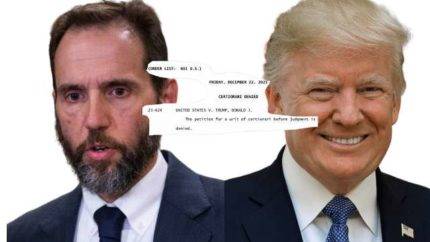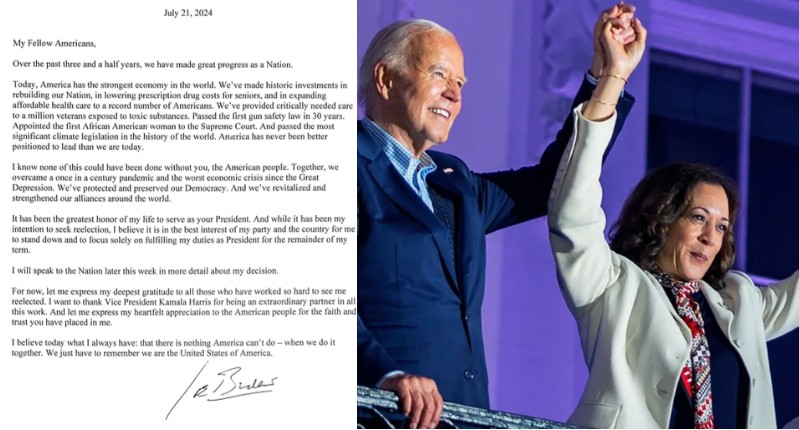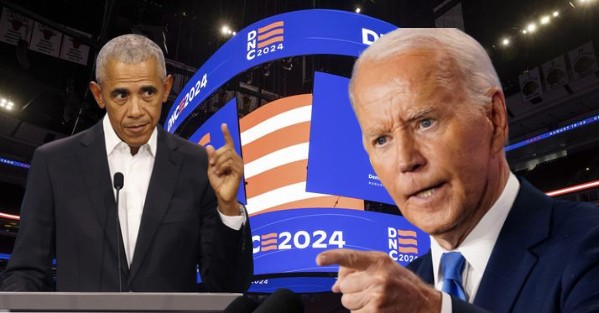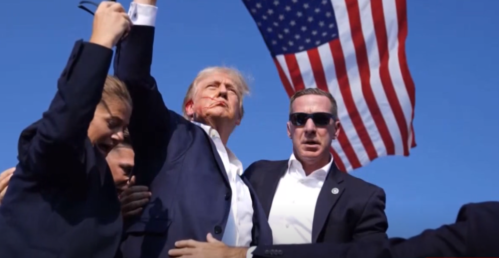A legal development coming out of Washington DC- The US Supreme Court has rejected a request from Special Prosecutor Jack Smith to fast-track the review of former President Donald Trump‘s assertion of “absolute presidential immunity.” This decision marks a crucial turn in the 2020 election interference case against Trump, where Smith sought expedited consideration from the highest court.
US Supreme Court‘s Decision: Minor set-Back
The US Supreme Court’s denial, delivered through a brief order, stated, “The petition for a writ of certiorari before judgment is denied.” Notably, the justices did not provide explicit reasoning for their decision, and there was no indication of dissent among them. This outcome implies that the case will now follow the standard appellate process, continuing its course through the legal system.
The rejection of the request for an expedited review underscores the court’s commitment to following established legal procedures, reinforcing the principle that cases of such magnitude should undergo the regular appellate process. As the case is presently in the hands of the US Court of Appeals for the DC Circuit, this decision implies that the matter will undergo thorough examination and due process before any final judgment is reached. This development adds a layer of complexity to the legal proceedings and sets the stage for a meticulous and comprehensive evaluation of Trump’s claim of absolute presidential immunity in the context of the 2020 election interference allegations.
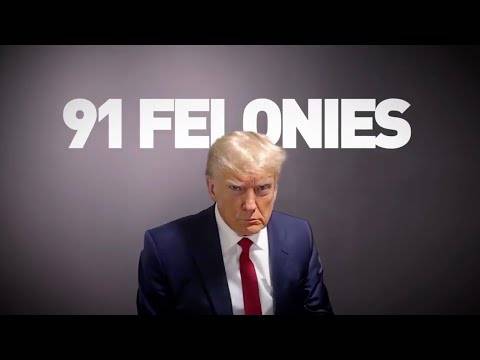
Implications for Trump and Legal Precedent
The US Supreme Court‘s decision not to expedite the review carries significant implications for both former President Donald Trump and the broader legal landscape surrounding presidential immunity. By opting for the standard appellate process, the court signals a commitment to the thorough examination of the case, emphasizing the importance of adhering to established legal procedures.
For Trump, this decision means that the resolution of the 2020 election interference case will not be expedited, and any potential legal ramifications will follow a more extended timeline. The rejection of an expedited review also implies that the former president will need to navigate the intricate legal process, allowing for a more comprehensive evaluation of his claim of absolute presidential immunity.
The Supreme Court’s stance reinforces the idea that even matters involving former presidents demand a meticulous and measured approach within the established legal framework.
Trump Gets Temporary Relief From US Supreme Court But Faces Continuous Legal Woes
Former President Donald Trump, while granted temporary relief by the US Supreme Court, finds himself ensnared in fresh legal turmoil following the revelation of recordings capturing his attempts to pressure two Republican members of the Wayne County, Michigan Board of Canvassers. The recordings, circulating online, depict Trump urging the canvassers not to sign the certification affirming Joe Biden’s victory in the 2020 election. This revelation adds a new layer of complexity to Trump’s post-election legal battles, showcasing a persistent cycle of challenges.
In the recorded conversation, both Trump and RNC Committee Chairwoman Ronna McDaniel are implicated, as they actively dissuade the canvassers, offering legal support and pledging to cover the costs of their attorneys. Trump’s explicit efforts to sway the certification process raise questions about the extent of his involvement in influencing local officials, thereby intensifying the ongoing scrutiny of his post-election activities. This development not only deepens the legal jeopardy for the former president but also underscores the intricacies of his attempts to overturn the election results.
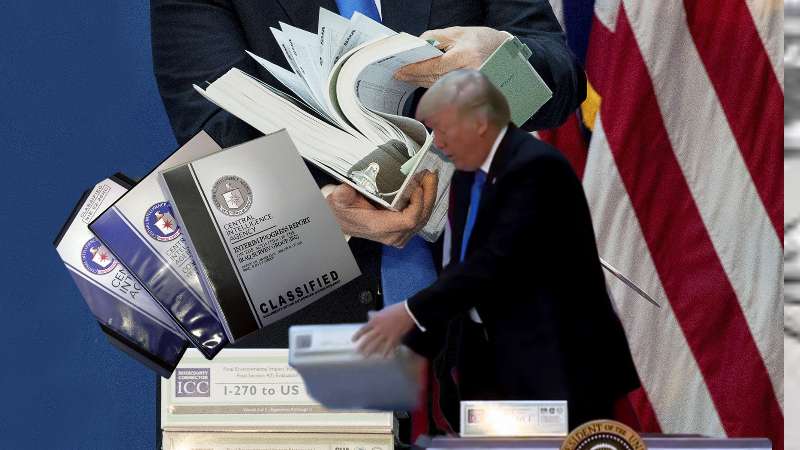
US Supreme Court Awaiting Weigh in on Colorado Supreme Court Barring Trump from 2024 Ballot
The US Supreme Court is also awaiting an opportunity to weigh in on the recent decision by the Colorado Supreme Court to exclude Donald Trump from the 2024 election ballot. The Colorado court’s ruling, determined by a narrow 4-3 vote, disqualified the former President by invoking Section 3 of the 14th Amendment to the US Constitution. This constitutional provision prohibits individuals who have “engaged in insurrection” from holding federal or state office. By deeming Trump’s involvement in the Capitol riot as an act of insurrection, the state court’s decision establishes a precedent with broad implications, prompting legal challenges across the nation.
In the aftermath of this ruling, Trump’s candidacy for the 2024 GOP nomination is facing scrutiny in multiple states, as the court’s declaration of his ineligibility resonates within the political arena. Beyond challenging the parameters of political participation for those linked to actions deemed as insurrection, the judgment also transforms the dynamics of the upcoming presidential race. As various states grapple with the repercussions of this groundbreaking decision, the legal battles related to Trump’s alleged efforts to overturn the 2020 election results come to the forefront, introducing unprecedented complexity into the landscape of the 2024 political arena.
Table of Contents
Discover more from OGM News NG
Subscribe to get the latest posts sent to your email.











